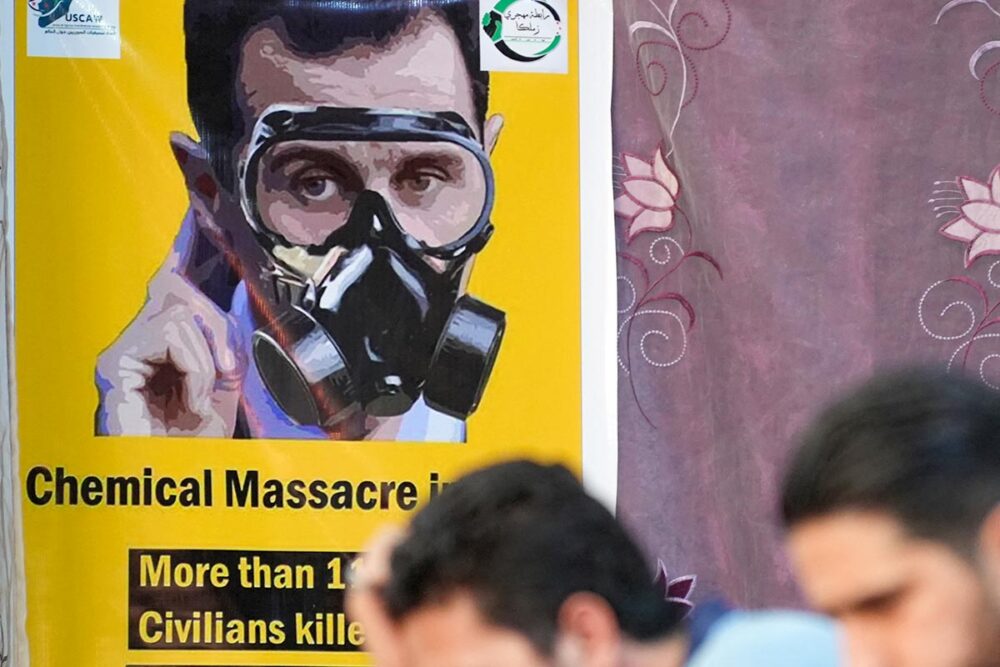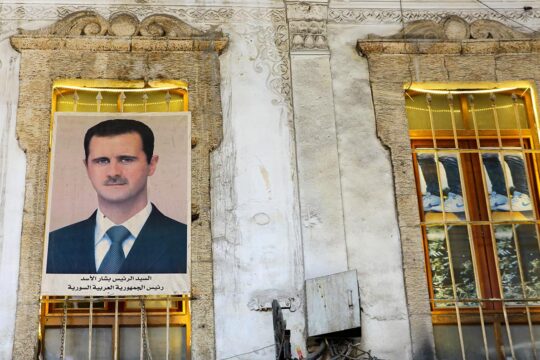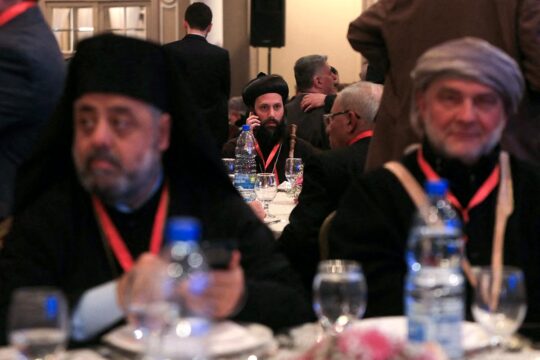Paris judges on Wednesday confirmed a French arrest warrant for Syrian leader Bashar al-Assad over alleged complicity in crimes against humanity for 2013 chemical attacks, the plaintiffs' lawyers said.
The Paris appeals court found Assad could be sought over deadly August 2013 attacks on Syrian soil with chemical weapons.
"This is a historic decision. It's the first time a national court has recognised that a sitting head of state does not have total personal immunity" for their actions, said the plaintiffs' lawyers Clemence Bectarte, Jeanne Sulzer and Clemence Witt.
Prosecutors from a unit specialised in investigating terrorist attacks had sought to annul the warrant, arguing that immunity for foreign heads of state should only be lifted for international prosecutions, such as before the International Criminal Court (ICC).
They did not aim to "question the existence of evidence demonstrating Bashar al-Assad's complicity in the chemical attacks," they said.
France is believed to be the first country to have issued an arrest warrant for a sitting foreign head of state.
The Syrian opposition hailed the move on Wednesday.
"The victims' families... appreciate these efforts, which provide them with moral support and apply additional pressure on the Assad regime, another step in getting justice for the Syrian people", the National Coalition of Syrian Revolution and Opposition forces said in a statement.
The group, which brings together diverse strands of Syrian opposition, called on other countries to follow suit and for charges to be brought before the International Criminal Court.
International Human Rights League (FIDH) lawyer Mazen Darwish posted on X that the French decision was "great news" and "a new victory for the victims".
"There is no immunity in this type of crime," he added.
2013 attacks
The anti-terrorist prosecutors could yet appeal the judgement to France's highest court, the Court of Cassation.
The arrest warrant -- initially issued in mid-November on the request of investigative magistrates specialised in so-called crimes against humanity -- calls for Assad to be detained over his role in the chain of command for attacks on Adra and Douma on August 4-5, 2013, and East Ghouta on August 21.
Around 450 people were hurt in the first attack, while American intelligence says over 1,000 were killed with sarin nerve gas in East Ghouta, a suburb of Syrian capital Damascus.
Alongside Assad, the warrants target his brother Maher -- then head of the Syrian army's fourth division -- and two generals, Ghassan Abbas and Bassam al-Hassan.
The anti-terror prosecutors contested only the warrant for Bashar al-Assad's arrest.
The investigation by France's OCLCH crimes against humanity unit is based on photos, videos and maps, many supplied by plaintiffs, as well as testimony from survivors and former military personnel.
Soon after the attacks, Syria agreed to join the Organisation for the Prohibition of Chemical Weapons (OPCW), and has denied subsequent allegations it continued to use the arms.
It had its OPCW voting rights suspended in 2021 following poison gas attacks on civilians in 2017.
The Syrian civil war broke out in 2011 with the brutal repression of anti-government protests, escalating into a deadly armed conflict involving foreign powers and global jihadist groups.
The war has killed more than half a million people and displaced half of the country's pre-war population.





